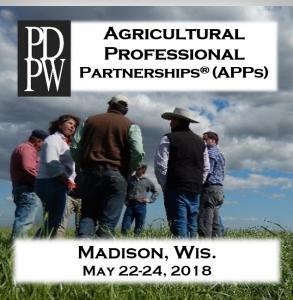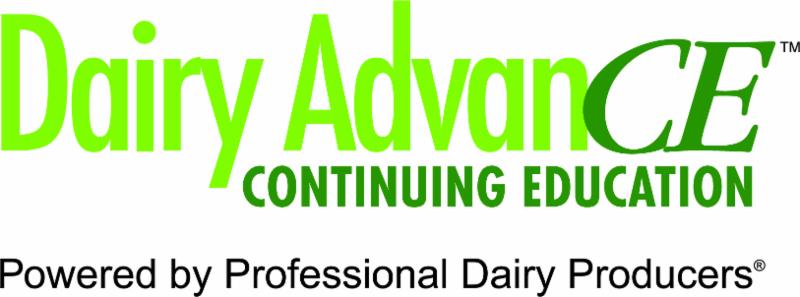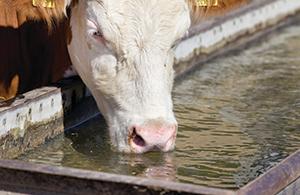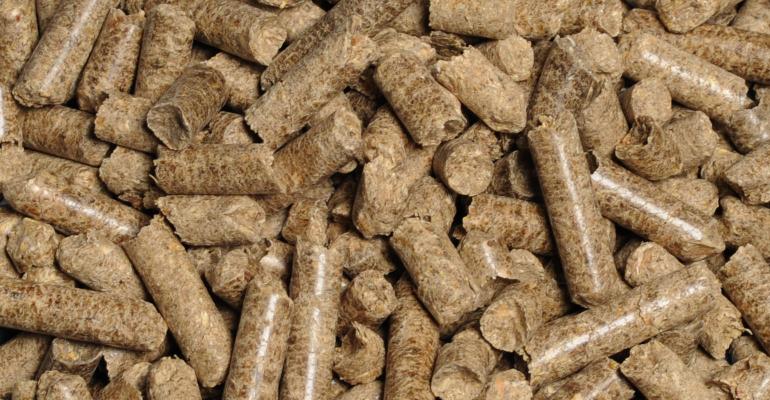|
Brought to you by Dairy's Professional Development Organization®
|
|
Opportunities to learn...
 ON-FARM TRAINING FOR NON-FARM INDUSTRY PROFESSIONALS is set for May 22-24 in Madison, Wis. Agricultural Professional Partnerships® (APPs) is a 3-day program designed for industry professionals with limited on-farm experience. Attendees learn more about modern dairying through on-farm and classroom sessions with industry experts and dairy producers. Participants will learn firsthand about animal care practice, environmental stewardship techniques, employee management and the economics of production agriculture on dairies in southern Wisconsin. To learn more and to register, click
here
or call 800-947-7379. ON-FARM TRAINING FOR NON-FARM INDUSTRY PROFESSIONALS is set for May 22-24 in Madison, Wis. Agricultural Professional Partnerships® (APPs) is a 3-day program designed for industry professionals with limited on-farm experience. Attendees learn more about modern dairying through on-farm and classroom sessions with industry experts and dairy producers. Participants will learn firsthand about animal care practice, environmental stewardship techniques, employee management and the economics of production agriculture on dairies in southern Wisconsin. To learn more and to register, click
here
or call 800-947-7379.

HOT TOPIC WEBINARS JUST A CLICK AWAY at the PDPW World Class Webinars Library. Five years' worth of top-quality online webinars - featuring some of the dairy industry's leading experts in animal care, economics, human resources and many other topics - are available to purchase for your own viewing or to use as a teaching tool with your team. Click
here
to browse the library or purchase access.
 DID YOU KNOW? PDPW'S VIRTUAL TRADE SHOW IS OPEN ALL YEAR LONG. Looking for contact information for a company or vendor you saw at the PDPW Business Conference or more information on a product you saw in the Hall of Ideas? The PDPW Virtual Trade Show is a year-round benefit to dairy farmers and industry leaders. Companies can post updated contact information, company profiles and product information, and farmers can browse through the information anytime. Check out the
Virtual Trade Show
today. DID YOU KNOW? PDPW'S VIRTUAL TRADE SHOW IS OPEN ALL YEAR LONG. Looking for contact information for a company or vendor you saw at the PDPW Business Conference or more information on a product you saw in the Hall of Ideas? The PDPW Virtual Trade Show is a year-round benefit to dairy farmers and industry leaders. Companies can post updated contact information, company profiles and product information, and farmers can browse through the information anytime. Check out the
Virtual Trade Show
today.

CHECK OUT DAIRY ADVANCE
- Find, track and report your Continuing Education (CEs). Free to dairy farmers and students, a Dairy AdvanCE account is easy to set up. To read what others have to say about this award-winning continuing-education tracker, click
here
.
|
For your dairy...
FIVE KEY MANAGEMENT AREAS CAN ABATE RISING LABOR COSTS
,according to Jason Karszes, Senior Extension Associate with PRO-DAIRY program at Cornell University, the five critical areas to consider are capital investments, lean manufacturing, labor effectiveness, custom services and joint ventures or collaboration.. Speaking to a roomful of attendees at a session at the 2018 PDPW Business Conference, he presented case studies and offered sensible strategies for decreasing hired-labor hours while increasing output and earnings per hour.
Capital investments
have long been used by producers as a strategy to reduce labor hours or workload - from horses and tractors to automatic milking and calf-feeding systems.
Lean manufacturing, a strategy used to identify and eliminate waste, enables businesses to meet expectations at a minimal cost. Key to lean manufacturing is actively assessing work activities specifically to design workflow, protocols and standard operating procedures that remove waste and improve output.

Labor effectiveness
, the impact that the labor force has on productivity and costs, is different from labor efficiency (e.g., milk sold per worker). Labor effectiveness aims to complete the proper tasks in the proper order each day to minimize loss. "If higher labor effectiveness can lower costs and improve productivity, the business may be able to support higher wages," said Karszes.
Custom services and joint ventures
round out the list of five management responses to rising labor costs. Key factors to think through when considering if custom services can feasibly lessen labor hours include how inefficiently the farm currently manages specific activities. In addition to equipment repair and income tax preparation, a business might benefit from custom manure hauling, harvesting or calf-raising.
Joint ventures - or collaborating with other dairy operations - can be a way to bring in unrealized profits. Owning large specialized equipment together or joining forces with another dairy to jointly hire a veterinarian, a reproduction specialist or a chief financial officer are a few ideas offered by Karszes.
 STUDY SHOWS WATER IN TROUGHS CAN SPREAD E.COLI in cattle. A study published in the February 2018 peer-reviewed scientific journal PLOS ONE was conducted by Cornell researchers at Texas beef feedlots and found that E. coli levels were reduced in pens where levels of water in automatically refilling water troughs were kept higher. More research is needed, but this is the first study to confirm that water troughs can be a conduit for spread of E. coli between cattle, which can then spread to people through bacteria in feces. Read more here
. STUDY SHOWS WATER IN TROUGHS CAN SPREAD E.COLI in cattle. A study published in the February 2018 peer-reviewed scientific journal PLOS ONE was conducted by Cornell researchers at Texas beef feedlots and found that E. coli levels were reduced in pens where levels of water in automatically refilling water troughs were kept higher. More research is needed, but this is the first study to confirm that water troughs can be a conduit for spread of E. coli between cattle, which can then spread to people through bacteria in feces. Read more here
.
DETAILS MATTER WHEN MIXING MILK REPLACER
for calves. Consistency is key for calf-feeding programs, and it's especially important when mixing and feeding milk replacer. An article from Michigan State University Extension details the importance of measuring total solids in the final volume of milk replacer fed. The correct way to mix milk replacer is to start with water, add the powder, then add enough water to bring up to the total volume. Water must be at the proper temperature (110 - 120 º F at mixing; 100 to 105 º F when feeding) and mixing time should be long enough to get all product in suspension. Read more
here
.
|
 NEW TECHNOLOGIES FOR FOOD PRESERVATION
are being developed to protect against bacteria and spoilage while continuing to protect nutrition, flavor and texture of the food. Blue light, radio-frequency waves, cold-plasma blasts, focused microwave energy, probiotics and more are being tested to keep food fresh longer - often without refrigeration. Maintaining the nutrition and taste of food products longer is a key element of meeting food security needs now and into the future. Read more in this
Wired article
. NEW TECHNOLOGIES FOR FOOD PRESERVATION
are being developed to protect against bacteria and spoilage while continuing to protect nutrition, flavor and texture of the food. Blue light, radio-frequency waves, cold-plasma blasts, focused microwave energy, probiotics and more are being tested to keep food fresh longer - often without refrigeration. Maintaining the nutrition and taste of food products longer is a key element of meeting food security needs now and into the future. Read more in this
Wired article
.

CORN STOVER COULD BE USED TO RECYCLE ELECTRONIC WASTE
according to research conducted by
the U.S. Department of Energy's Critical Materials Institute headquartered at the Ames Laboratory on the Iowa State University campus and carried out by scientists at Idaho and Lawrence Livermore national laboratories and Purdue University. A new biochemical leaching process converts corn stover into basic sugars that feed metal-mining bacteria that can extract rare earth metals from electronic waste materials. The ability to recover high-demand rare earth minerals from discarded cell phones, hard drives and other equipment could help alleviate the growing environmental problem of electronic waste. Read more
here
.
|
For your business mind...
LOW-INVESTMENT, HIGH-RETURN HERD-MANAGEMENT OPPORTUNITIES
can provide benefits to dairy farms during tight-margin environments. Taking time to review key aspects of your operation to ensure that herd management is meeting needs of animals and meeting productivity goals is key. An article
from Cornell University outlines 10 areas to focus on:
- Maximize milk-component production
- Relentlessly seek marginal-milk opportunities
- Don't lose fresh cows
- Identify and potentially cull low-value and low-profit cows
- Ensure all management protocols are still appropriate and are being followed
- Don't incur excess heifer-rearing costs by raising animals too long or raising too many
- Optimize your reproduction program
- Optimize neonatal management
- Strategically identify ration opportunities
- Maximize your feed-management program
Read the full article
here
.
TAKING AN "EYES ON, HANDS OFF" APPROACH
can help today's managers empower employees and achieve the best results. According to a Fast Company article, managers should be able to clearly articulate the situation and end goal, then give team members the flexibility and decision-making authority to accomplish the goals. As technologies evolve, so are many job roles and the value of looking at tasks from a variety of perspectives continues to increase. Read the full article and see a simple chart outlining this management philosophy
here
.
THE POWER OF FOCUS TO FUEL PRODUCTIVITY AND INNOVATION
was the topic of an article in Inc. magazine. Being able to focus clearly on a task is critical to being able to think, reason, communicate and solve problems, and multitasking can often have a negative effect on those tasks. Steve Jobs also emphasized the importance of focus when developing new ideas and products, saying "I'm actually as proud of the things we haven't done as the things I have done. Innovation is saying no to 1,000 things." The article outlines several ways to say "no" to boost productivity:

- Say no to cluttering your mind
- Say no to interruptions
- Say no to time-robbers and yes to time locking
- Say no to your unbelief
Learn more in the full article
here
.
|
"Ideas are important, but they're not essential.
What's essential
and important is the execution of the idea."
---
John Landis
|
Book review...

BOUNCE: MOZART, FEDERER, PICASSO, BECKHAM AND THE SCIENCE OF SUCCESS
Sports journalist and two-time Olympian Matthew Syed looks at performance psychology in sports, business and many other arenas. How do we stay focused and think of the long game when we're trying to achieve our goals? How do we handle ups and downs, and stay resilient as we slowly move forward? He combines research with his own experiences as an Olympic table tennis player who choked in his first Olympics. Learn more
here
.
|
|
A BIG Thank You...
TO THE PDPW SPONSORS who are supporting your professional development organization! As a producer-led group,we extend a heart-felt "Thank You!" to those that stand alongside our nation's dairy farmers. T
heir support allows PDPW to execute best-in-class producer training and has enabled us to become the go-to resource for unified outreach initiatives. If you or a company you know is interested in participating as a sponsor, please contact us at abonomie@pdpw.org or call 800-947-7379.
See the full list of generous sponsors
here.
|
|
PDPW Education Calendar
| May 22-24 |
APPs On-Farm Training for Non-Farm Professionals: Madison, Wis.
|
| Jan. 15-17, 2019 |
2019 PDPW Managers Academy for Dairy Professionals
|
| Mar. 13-14, 2019 |
2019 PDPW Business Conference: Madison, Wis.
|
STAY CONNECTED
800-947-7379
|
|
|
|
|